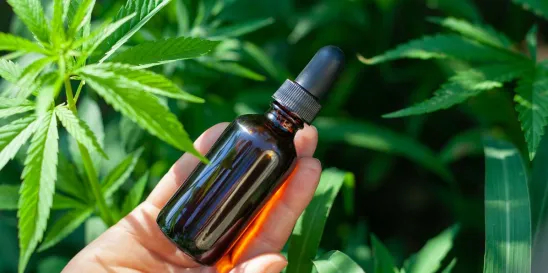On Nov. 14, 2023, the Commonwealth Court of Pennsylvania made a significant ruling in the realm of workers' compensation and cannabis and hemp law. The case involved workers’ compensation attorney Mark Schmidt, who sustained a back injury while working for his firm Schmidt, Kirifides & Rassias. This ruling addresses the complex issue of whether cannabidiol (“CBD”) oil qualifies for reimbursement under the Pennsylvania Workers’ Compensation Act.
Background: A Workplace Injury
Attorney Mark Schmidt's back injury led to a prescribed treatment plan including CBD oil. When Schmidt sought reimbursement from his employer, he was met with rejection on the grounds that CBD oil does not constitute a pharmaceutical drug according to conventional standards. This denial sparked Schmidt to challenge the decision with the Worker’s Compensation Board.
Initial Ruling: Workers' Compensation Judge’s Perspective
The workers' compensation judge overseeing Schmidt's case ruled in his favor, categorizing CBD oil as a medical supply under the Workers' Compensation Act. This decision underscored the judge’s recognition of CBD oil as part of the necessary medical treatment for Schmidt's injury. But the employer disagreed, appealing this decision.
Appeal and Board’s Reversal: A Conservative Stance
The appeal brought the case before the Workers' Compensation Appeal Board (the “Board”), which reversed the initial ruling. The Board's decision was heavily influenced by the FDA’s stance on CBD oil, particularly regarding the marketing of CBD products. They cited several warning letters issued by the FDA to firms marketing CBD products in violation of federal law, including the Federal Food, Drug, and Cosmetic Act. In the Board’s view, warning letters to CBD manufacturers constituted grounds to conclude CBD was unlawful under federal law.
Commonwealth Court’s Decision
The Commonwealth Court’s panel, led by Judge Anne Covey, brought a fresh perspective to the case. The Court criticized the Board for its unauthorized fact-finding and failure to properly categorize CBD oil under the Act. The court’s ruling was groundbreaking in its assertion that the lack of FDA approval does not inherently render the use of or employer’s reimbursement for CBD oil illegal. This ruling marks a significant departure from conventional interpretations, underscoring a more liberal approach to CBD oil's legal status.
The Court on FDA Approval and CBD Marketing
Central to the Court's ruling was the distinction between the FDA's approval process and the actual legality of CBD oil. The court emphasized that the Workers' Compensation Act does not mandate FDA approval for a treatment to qualify for reimbursement. This aspect of the ruling is pivotal because it suggests that the legality of CBD oil for workers' compensation purposes does not hinge on FDA approval. The court acknowledged that while the FDA has not approved the marketing of CBD oil as a dietary supplement, this lack of approval does not automatically render the use of CBD oil illegal or ineligible for reimbursement under the Workers' Compensation Act.
A critical aspect of the court's decision revolves around the marketing of CBD products. The court noted that only the marketing of CBD products in ways that violate federal law (e.g., making unsubstantiated medical claims such as “prevents cancer”) renders those specific marketing practices illegal. This interpretation implies that CBD oil itself is not inherently illegal; rather, its legality is contingent upon the way it is marketed.
Contradictory Regulatory Perspectives in Pennsylvania
The Commonwealth Court's interpretation contrasts sharply with the views of the Pennsylvania Liquor Control Board and the Department of Agriculture. These regulatory bodies have maintained a more conservative stance, considering consumable CBD products as unlawful, largely due to the FDA's lack of approval for them. This recent decision questions these regulatory bodies’ stance because according to the Commonwealth Court, the FDA has not outlawed CBD products; rather, the agency outlawed misleading marketing of CBD products.
Conclusion: The Future of CBD in Pennsylvania
The Commonwealth Court's decision opens new doors in understanding the legal status of CBD oil, particularly in the context of workers' compensation. By challenging the regulatory bodies' stance that views CBD as broadly unlawful, the court’s CBD ruling in this case questions the current regulatory framework and calls for a reassessment of CBD's legal standing by Pennsylvania agencies. As the legal landscape continues to evolve, this case could be a catalyst for more liberal interpretations of CBD use, especially in medical treatment and workplace injury recovery. It underscores the dynamic nature of cannabis and hemp law and indicates a potential shift towards broader acceptance and recognition of CBD oil's role in health and wellness.
The legal landscape for cannabis and CBD use is a hot topic in most U.S. states at this time. With the legalization of recreational cannabis use on the table in 26 states, including Pennsylvania, it is essential to keep updated and knowledgeable of your state’s (and the federal) cannabis law.



 />i
/>i
